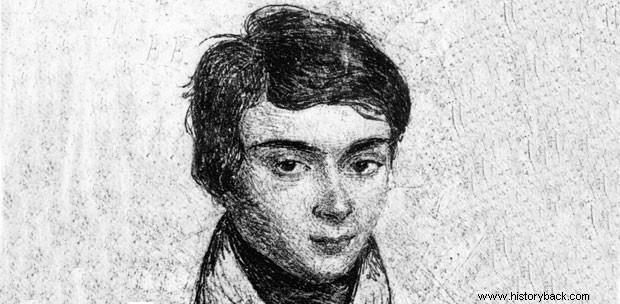
Portrait of Evariste Galois
mathematics it is anything but a passion of mine, therefore I have never been interested either in the discipline itself or in its most illustrious exponents, until the other day, leafing through an old issue of the magazine Storica ( 69, November 2014 ), I did not come across the figure, completely unknown to me, of Evariste Galois.
This young mathematician was overwhelmed by a cruel and almost certainly, until his fulfillment, completely unthinkable.
The boy, brilliant and precocious, was mentioned in a larger article on duels, sad "fashion" of the past centuries of which he too was a victim.
Driven by curiosity, I started looking for news about him and I discovered that he is a really interesting character, both from a cultural, scientific and human point of view.
Evariste Galois was born in France in 1811 and immediately distinguished himself for his acumen and intelligence, especially in his studies, so much so that at just 19, he presented one of the most important theories of abstract algebra , which in fact bears his name ( Galois Theory ).
Now embarked on a bright future and already considered by contemporaries a great promise of mathematics, Galois's dreams were shattered in the face of a circumstance that was anything but rare at the time:to defend the honor of a woman he had fallen in love with. , on May 31, 1832 , at 21, the young man faced a duel in which his injuries led to his death the following day.
This is at least the official version and reason for the incident, since there were also those who advocated the possibility of a political murder, accusing the King's secret police.
To this day, the untimely death of Evariste Galois remains in some respects a mystery, as does his tomb.
In the cemetery of Bourg-la-Reine there is a cenotaph in honor of her, but it is not known where the young man's body actually lies, buried in a mass grave of which (for now) the location is unknown.
If you want to know more: it.wikipedia.org, biografieonline.it and histories.it/numero/gli-ultimi/l lasts-notte-di-galois/). .
